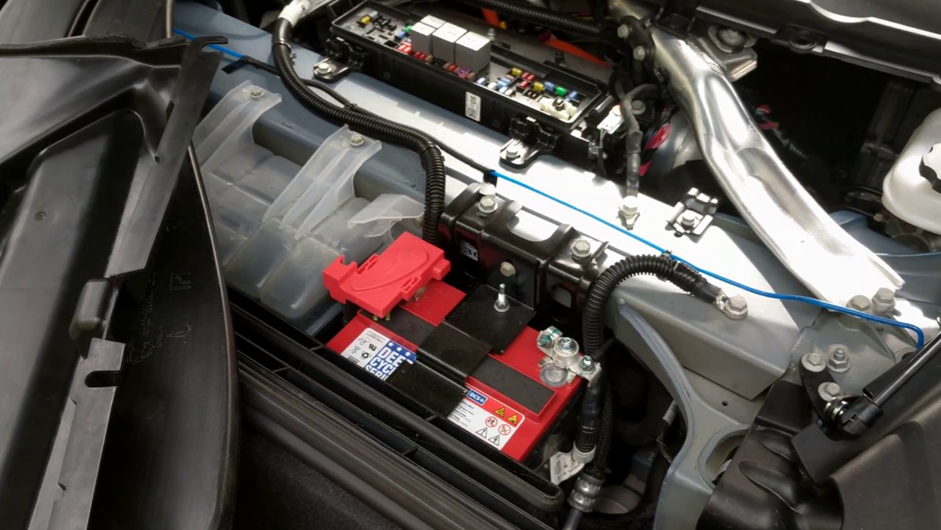Advancements in Energy Storage: The Power of Lithium Battery Stations
Introduction
The world is experiencing a paradigm shift towards renewable energy sources as the need for sustainable solutions becomes increasingly urgent. Solar and wind energy are gaining popularity due to their clean and abundant nature. However, one significant challenge with these renewable sources is their intermittent nature, as they depend on weather conditions. To address this issue, advancements in energy storage technologies have become paramount. Among these advancements, lithium battery stations have emerged as a highly promising solution. This article will delve into the unique capabilities and potential of these battery stations in revolutionizing the energy storage landscape.
Unleashing the Power of Lithium Batteries
Lithium-ion batteries have revolutionized portable electronics, electric vehicles, and now, energy storage. These batteries possess several inherent advantages that make them an ideal choice for large-scale energy storage applications.
1. High Energy Density: Lithium batteries have a high energy density, allowing for storage of a large amount of energy in a compact space. This characteristic is crucial for ensuring efficient and space-effective energy storage solutions.
2. Fast Charging and Discharging: Lithium batteries have a high charging and discharging efficiency, enabling a quick response time. This capability ensures that the stored energy can be rapidly dispatched during peak demand periods, contributing to grid stability.
3. Long Cycle Life: Lithium batteries exhibit a prolonged cycle life, meaning they can undergo a large number of charge and discharge cycles without significant degradation. This durability ensures a long lifespan for energy storage systems, reducing the need for frequent replacements.
4. Scalability: Lithium battery stations are highly scalable, allowing for easy expansion or reduction of energy storage capacity as required. This flexibility makes them adaptable to various energy storage needs, from residential to industrial-scale applications.
Applications of Lithium Battery Stations
1. Grid Stabilization: Lithium battery stations play a crucial role in stabilizing the electricity grid. They can absorb excess energy during periods of low demand and release it during peak demand, reducing the strain on the grid. This capability helps to maintain grid reliability and prevents blackouts or brownouts.
2. Renewable Integration: The intermittent nature of renewable energy sources, such as solar and wind, poses challenges for grid operators. Lithium battery stations can store excess energy generated during peak production periods and supply it during low production periods. This integration ensures a steady and reliable supply of renewable energy to the grid.
3. Emergency Power Backup: Lithium battery stations provide a reliable and efficient solution for emergency power backup. During natural disasters or grid failures, these battery stations can supply power to critical infrastructure, homes, and hospitals, ensuring the continuity of essential services.
4. Microgrids and Off-Grid Systems: Lithium battery stations are instrumental in the development of microgrids and off-grid systems. These systems enable communities or remote areas to generate and store their own energy, reducing reliance on traditional centralized power grids. The scalability of lithium battery stations makes them ideal for powering remote communities and facilitating energy independence.
Future Challenges and Opportunities
While lithium battery stations hold immense potential, there are still challenges that need to be addressed for their widespread adoption.
1. Cost: The upfront cost of lithium battery stations remains relatively high. However, with ongoing research and development, economies of scale are expected to drive down costs, making them more accessible to consumers and businesses.

2. Environmental Impact: The extraction and production of lithium can have environmental consequences. However, efforts are being made to develop more sustainable methods of lithium extraction and recycling, mitigating these impacts.
3. Technology Advancements: Continuous research and innovation are needed to enhance the performance and energy density of lithium batteries further. This will ensure that they remain at the forefront of energy storage technologies.
Conclusion
Lithium battery stations have the potential to revolutionize the energy storage landscape, enabling the widespread integration of renewable energy sources. Their high energy density, fast charging and discharging capabilities, long cycle life, and scalability make them an ideal choice for various applications. From grid stabilization to emergency power backup and off-grid systems, lithium battery stations offer reliable and efficient energy storage solutions. Although challenges remain, ongoing advancements in technology and economies of scale are expected to overcome these obstacles, making lithium battery stations a driving force in the transition towards a sustainable energy future.
-
 In today's fast-paced world, having a reliable and efficient 24V on-board battery charger for your vehicle is essential. Whether you own a truck, RV, or boat, ensuring that your battery is always powered up and ready to go is crucial for a seamless and hassle-free experience. In this article, we will explore the importance of having a reliable on-board battery...Read more
In today's fast-paced world, having a reliable and efficient 24V on-board battery charger for your vehicle is essential. Whether you own a truck, RV, or boat, ensuring that your battery is always powered up and ready to go is crucial for a seamless and hassle-free experience. In this article, we will explore the importance of having a reliable on-board battery...Read more -
 As the global population continues to grow, so does the demand for electricity. In today's modern world, it's essential to have a reliable and efficient power grid system. This is where smart grids come into play, revolutionizing the way we generate, distribute, and consume electricity. At the heart of this transformation lies the power of lithium batteries. Lithium batteries...Read more
As the global population continues to grow, so does the demand for electricity. In today's modern world, it's essential to have a reliable and efficient power grid system. This is where smart grids come into play, revolutionizing the way we generate, distribute, and consume electricity. At the heart of this transformation lies the power of lithium batteries. Lithium batteries...Read more -
 Lithium Iron Phosphate (LiFePO4) batteries have a number of remarkable performance characteristics due to their unique chemical composition and structure. The following is an analysis of the main unique characteristics of Lithium Iron Phosphate batteries: 1. High safety The positive electrode material of lithium iron phosphate batteries, lithium iron phosphate, has high chemical stability, and the P-O bond in its...Read more
Lithium Iron Phosphate (LiFePO4) batteries have a number of remarkable performance characteristics due to their unique chemical composition and structure. The following is an analysis of the main unique characteristics of Lithium Iron Phosphate batteries: 1. High safety The positive electrode material of lithium iron phosphate batteries, lithium iron phosphate, has high chemical stability, and the P-O bond in its...Read more -
 In recent years, the concept of smart grids has gained significant attention in the field of energy management. A smart grid is an advanced electrical grid that utilizes digital technology to efficiently manage the generation, distribution, and consumption of electricity. One crucial component of smart grids is the use of lithium batteries, which offer several advantages over traditional lead-acid batteries....Read more
In recent years, the concept of smart grids has gained significant attention in the field of energy management. A smart grid is an advanced electrical grid that utilizes digital technology to efficiently manage the generation, distribution, and consumption of electricity. One crucial component of smart grids is the use of lithium batteries, which offer several advantages over traditional lead-acid batteries....Read more -
 In today's fast-paced and technology-driven world, uninterrupted power supply is of utmost importance for industries. Any downtime can result in significant financial losses, decreased productivity, and damaged reputation. To counter such risks, industrial power products batteries have emerged as a reliable source of uninterrupted power. Industrial power products batteries are specifically designed to provide a constant and reliable power...Read more
In today's fast-paced and technology-driven world, uninterrupted power supply is of utmost importance for industries. Any downtime can result in significant financial losses, decreased productivity, and damaged reputation. To counter such risks, industrial power products batteries have emerged as a reliable source of uninterrupted power. Industrial power products batteries are specifically designed to provide a constant and reliable power...Read more -
 As technology continues to advance, so do the batteries we use to power our devices. Lithium iron phosphate (LiFePO4) rechargeable batteries are a relatively new technology that offers significant benefits over traditional lead-acid batteries. In this article, we will discuss the advantages of LiFePO4 rechargeable batteries, their lightweight design, high energy density, compact size, and easy mobility. Advantages of LiFePO4...Read more
As technology continues to advance, so do the batteries we use to power our devices. Lithium iron phosphate (LiFePO4) rechargeable batteries are a relatively new technology that offers significant benefits over traditional lead-acid batteries. In this article, we will discuss the advantages of LiFePO4 rechargeable batteries, their lightweight design, high energy density, compact size, and easy mobility. Advantages of LiFePO4...Read more -
 The High Capacity 12V 100Ah LiFePO4 Lithium Iron Phosphate Battery is a powerful energy storage device that offers long-lasting power for a variety of applications. This battery is made using advanced lithium iron phosphate technology, which provides exceptional performance and reliability. With a capacity of 100Ah, this battery is capable of delivering a high level of power for extended...Read more
The High Capacity 12V 100Ah LiFePO4 Lithium Iron Phosphate Battery is a powerful energy storage device that offers long-lasting power for a variety of applications. This battery is made using advanced lithium iron phosphate technology, which provides exceptional performance and reliability. With a capacity of 100Ah, this battery is capable of delivering a high level of power for extended...Read more

